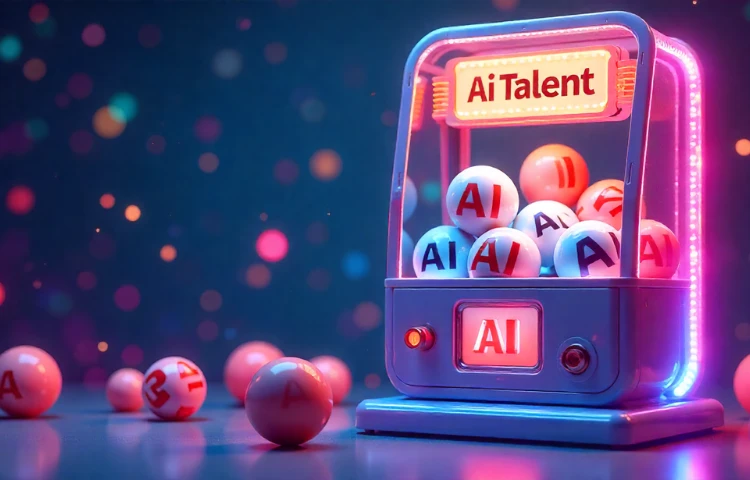

Prefer to listen instead? Here’s the podcast version of this article.
As artificial intelligence reshapes industries at breakneck speed, one thing has become crystal clear: AI talent is now one of the most valuable assets in the tech world. From billion-dollar buyouts to record-setting salaries, companies are scrambling to secure the brightest minds in machine learning and generative AI. This phenomenon—often referred to as the AI Talent Lottery—is redefining how organizations compete, innovate, and grow.
The AI Talent Lottery refers to how only a tiny fraction of researchers—those pioneering foundational breakthroughs—get offered nine‑figure deals, massive stock awards, and dominant roles in cutting‑edge labs. Firms believe that landing one breakthrough mind can pay off in leaps for a decade of AI innovation. It’s a winner‑takes‑all competition: companies are pouring billions into recruitment as if buying lottery tickets hoping one will hit big. [TradingView]
Meta and Big Tech are pulling out all stops. Meta alone has reportedly offered $100 million bonuses and billion‑dollar stock packages to elite researchers — a trend highlighted today by Axios in their newsletter. These packages go beyond cash; they signal long‑term bets on company value growth tied to breakthroughs in AGI. [Axios]
But most AI professionals aren’t “lottery winners.” While top “wizards” earn super‑star status, the majority of the tech job market is seeing slower growth and increasing competition. The “broad middle” remains underserved, and many companies are struggling with skill gaps across the board.
According to research, compensation for elite AI researchers increasingly includes significant non‑monetary perks—remote work, tuition, parental leave, well‑being perks—often doubling or tripling the value of traditional salary alone.
But many stars are driven by mission over money. Top experts prioritize intellectual autonomy, creative freedom, and alignment with avant‑garde problems over glitzy bonuses.
To avoid betting solely on “star recruitment,” companies need holistic strategies:
While elite researchers capture headlines and eye‑watering headlines in the AI Talent Lottery, most organizations can’t — and shouldn’t — rely on mega‑deals alone. A smarter, more sustainable approach is to build resilience through internal growth, skills‑based hiring, and inclusive upskilling strategies. That way, organizations create their own winning tickets—multiple smaller successes rather than a single jackpot bet.
WEBINAR